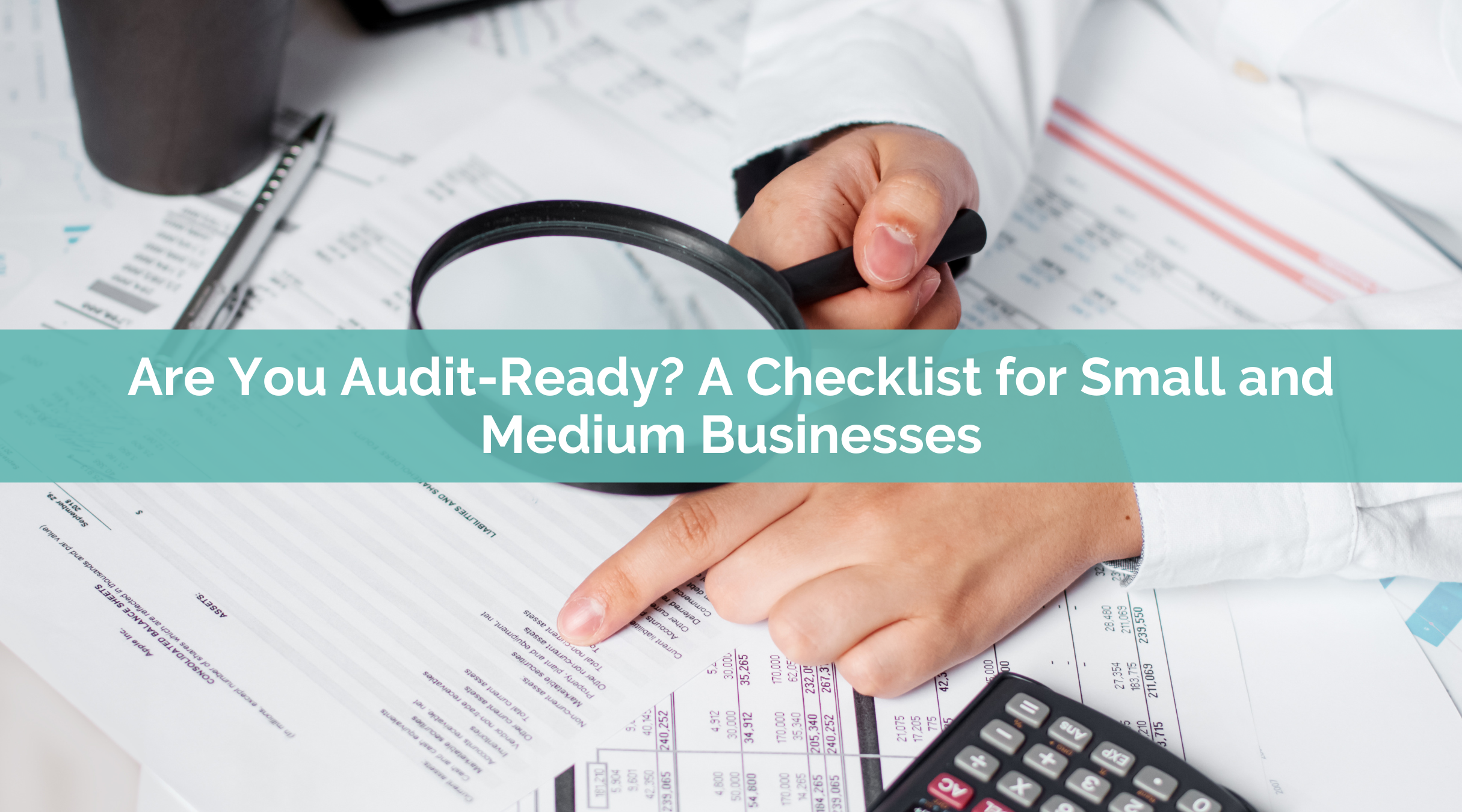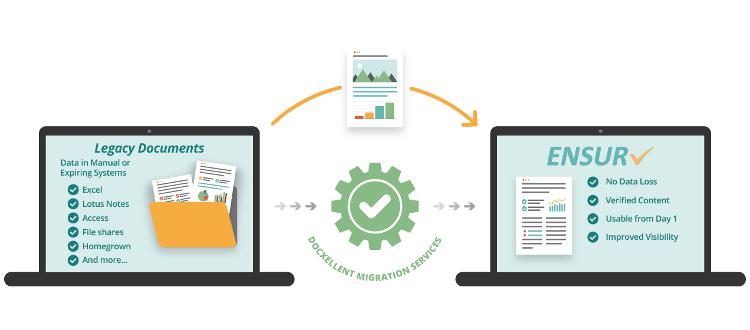
For small and medium businesses (SMBs), being audit-ready isn't just a best practice—it's a necessity. With audits looming over various aspects of business operations, from finances to compliance, the stakes are high. Failing to meet audit requirements can lead to severe consequences, including financial penalties, reputational damage, and even legal repercussions. In this guide, we'll delve into the importance of audit readiness for SMBs and provide a checklist to help businesses ensure compliance and readiness.
Understanding the Importance of Audit Readiness
Audit readiness is the state of preparedness that enables businesses to undergo audits seamlessly and successfully. This encompasses various types of audits, including financial audits, compliance audits, and tax audits, among others. Maintaining audit readiness offers numerous benefits, such as enhanced transparency, credibility with stakeholders, and operational efficiency.
Assessing Your Risks and Requirements
Assessing audit risks and understanding regulatory requirements is not merely a box to check; it's a foundational step in safeguarding the future of your SMB. In today's complex regulatory landscape, businesses face multifaceted challenges across various domains.
Here's how to delve deeper into this critical process:
- Identify Potential Audit Risks:
Start by examining your business operations to pinpoint potential audit risks lurking beneath the surface. Investigate financial recordkeeping practices, ensuring accuracy, completeness, and adherence to accounting principles. Monitor tax compliance procedures, including timely filings, deductions, and credits. Evaluate data security measures to protect sensitive information from cyber threats and breaches. Assess employee documentation practices, such as hiring records, payroll documentation, and compliance with labor laws. By conducting a comprehensive risk assessment, you can proactively identify and mitigate potential issues before they escalate. - Understand Regulatory Requirements:
Regulatory compliance is the cornerstone of audit readiness, encompassing numerous laws, regulations, and industry standards. Make sure to dive deep into the regulatory landscape relevant to your industry and geographic location. Whether it's financial regulations like GAAP or IFRS, tax laws at the federal, state, and local levels, data privacy regulations such as GDPR or CCPA, or employment laws governing hiring and employee rights, understanding your obligations is paramount. Leverage resources such as government websites, industry associations, and legal advisors to stay abreast of evolving regulatory requirements. - Stay Updated on Changes:
Regulatory landscapes are not static; they're constantly evolving in response to changing market dynamics, technological advancements, and societal trends. Keep a finger on the pulse of regulatory changes and audit standards relevant to your business. Subscribe to regulatory updates, attend industry conferences, and participate in professional development programs. Establish a mechanism for internal communication to disseminate regulatory changes promptly and ensure that relevant stakeholders are informed and prepared to adapt.
Creating an Audit Readiness Checklist
Putting together an audit readiness checklist helps lay a strong foundation for your SMB's compliance efforts. This audit checklist should encompass key components such as documentation, policies and procedures, internal controls, and data management practices. Let's take a look at how you can construct an effective checklist and empower your business for audit success:
- Documentation: Begin by compiling essential documents that provide a comprehensive snapshot of your business operations. This may include financial statements, tax returns, contracts, licenses, permits, and employee records. Organize these documents in a centralized repository to facilitate easy access and retrieval during audits.
- Policies and Procedures: Documented policies and procedures serve as the backbone of your compliance framework, guiding employees on acceptable practices and behaviors. Review and update existing policies, such as those related to financial reporting, data privacy, information security, and employee conduct. Ensure that policies are communicated effectively to all stakeholders and are readily accessible for reference.
- Internal Controls: Internal controls are mechanisms designed to safeguard assets, prevent fraud, and ensure accuracy and reliability in financial reporting. Evaluate your internal control environment to identify strengths and weaknesses. Implement controls such as segregation of duties, authorization processes, and regular reconciliations to mitigate risks and enhance accountability.
- Data Management Practices: Effective data management practices are critical for safeguarding sensitive information and ensuring data integrity. Assess your data storage, transmission, and disposal practices to identify vulnerabilities and compliance gaps. Implement data encryption, access controls, and data retention policies to protect against unauthorized access and data breaches.
Example of an Audit-Ready Checklist:
Here's a sample audit readiness checklist to kickstart your compliance efforts:
Financial Documentation:
- Balance sheets
- Income statements
- Cash flow statements
- Tax returns
- Accounts payable/receivable records
Policies and Procedures:
- Financial reporting policies
- Data privacy policy
- Information security policy
- Employee code of conduct
Internal Controls:
- Segregation of duties
- Approval workflows
- Regular reconciliations
- Access controls
Data Management Practices:
- Data encryption protocols
- Access control mechanisms
- Data retention policies
- Regular data backups
Regular Reviews and Updates: Finally, remember that audit readiness is an ongoing process that requires regular reviews and updates to adapt to changes in the business environment and regulatory landscape. Schedule periodic reviews of your audit readiness checklist to ensure its relevance and effectiveness. Incorporate feedback from audits, internal assessments, and regulatory updates to refine and enhance your compliance efforts continually.
By leveraging a comprehensive audit readiness checklist tailored to your SMB's unique needs and requirements, you can establish a solid foundation for compliance and navigate audits with confidence and ease.
Implementing Audit Preparation Strategies
Practical tips and strategies facilitate the implementation of items on the audit readiness checklist. Leveraging technology, such as accounting software and document management systems, streamlines audit preparation processes. Collaboration among key stakeholders, including finance, legal, HR, and IT departments, ensures alignment and accountability.
Conducting Mock Audits and Internal Reviews
Mock audits and internal reviews are invaluable tools for assessing and improving audit readiness. Planning and executing a mock audit involve selecting a qualified auditor, defining objectives, and analyzing findings to address any identified gaps or deficiencies. This proactive approach enhances preparedness for actual audits and strengthens compliance efforts.
Maintaining Ongoing Audit Readiness
Maintaining ongoing audit readiness requires a proactive approach and diligent efforts. Documenting compliance efforts, including recordkeeping, documentation retention, and audit trails, ensures transparency and accountability. Seeking professional guidance and support from auditors, consultants, or industry associations enhances compliance capabilities.
Audit readiness is essential for the success and sustainability of small and medium businesses. By prioritizing compliance efforts and utilizing the provided checklist, SMBs can assess and improve their audit readiness posture. Let's ensure that your business is prepared to face audits with confidence and competence.
Take the Next Step with DocXellent
Ready to streamline your document management and enhance your audit readiness? Contact DocXellent today to explore our comprehensive auditing solutions tailored for SMBs.
If you're seeking a cost-effective and user-friendly DMS, take a look at our ENSUR Lite guide—a perfect fit for SMBs looking for simplicity without sacrificing functionality. Empower your business with DocXellent and always stay audit-ready.





























